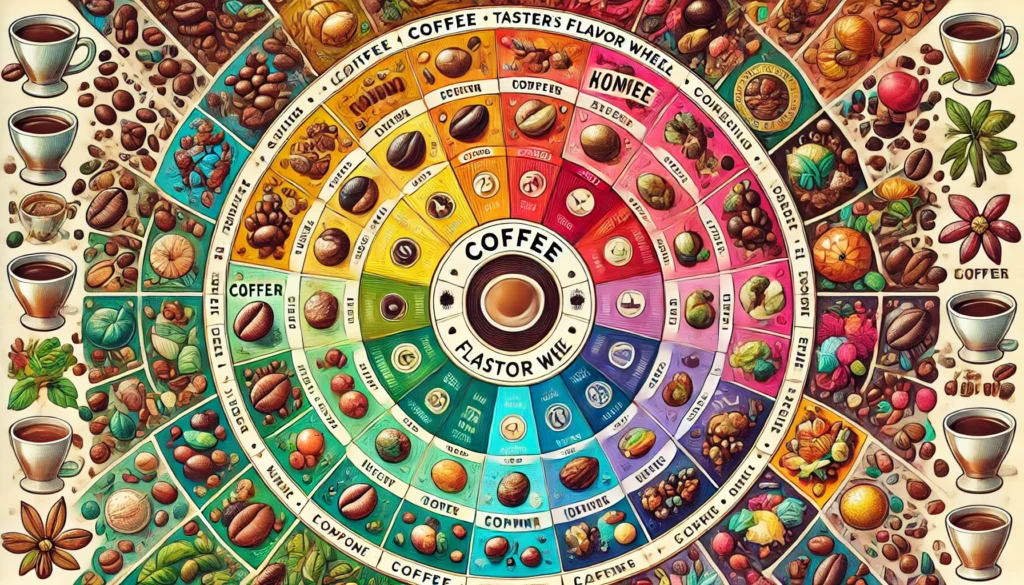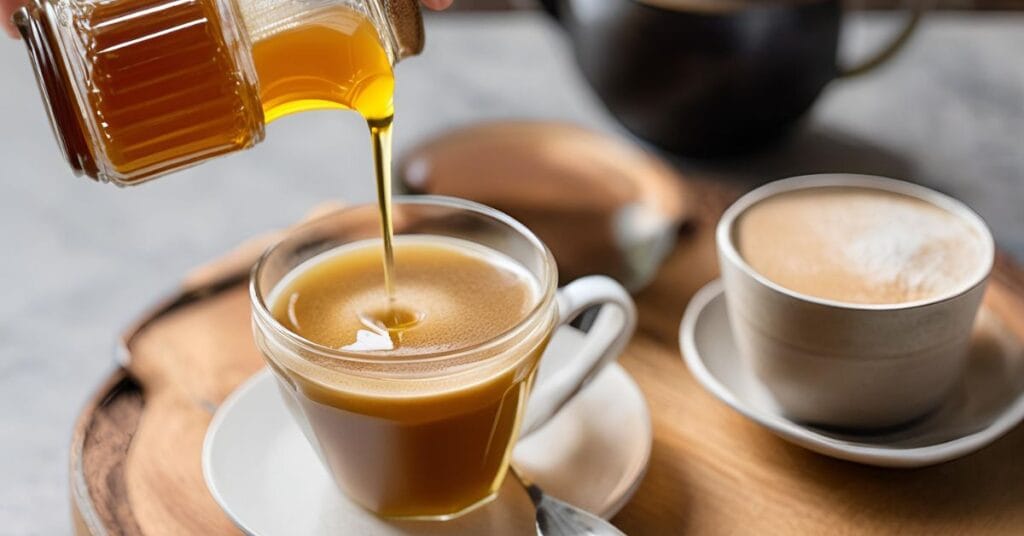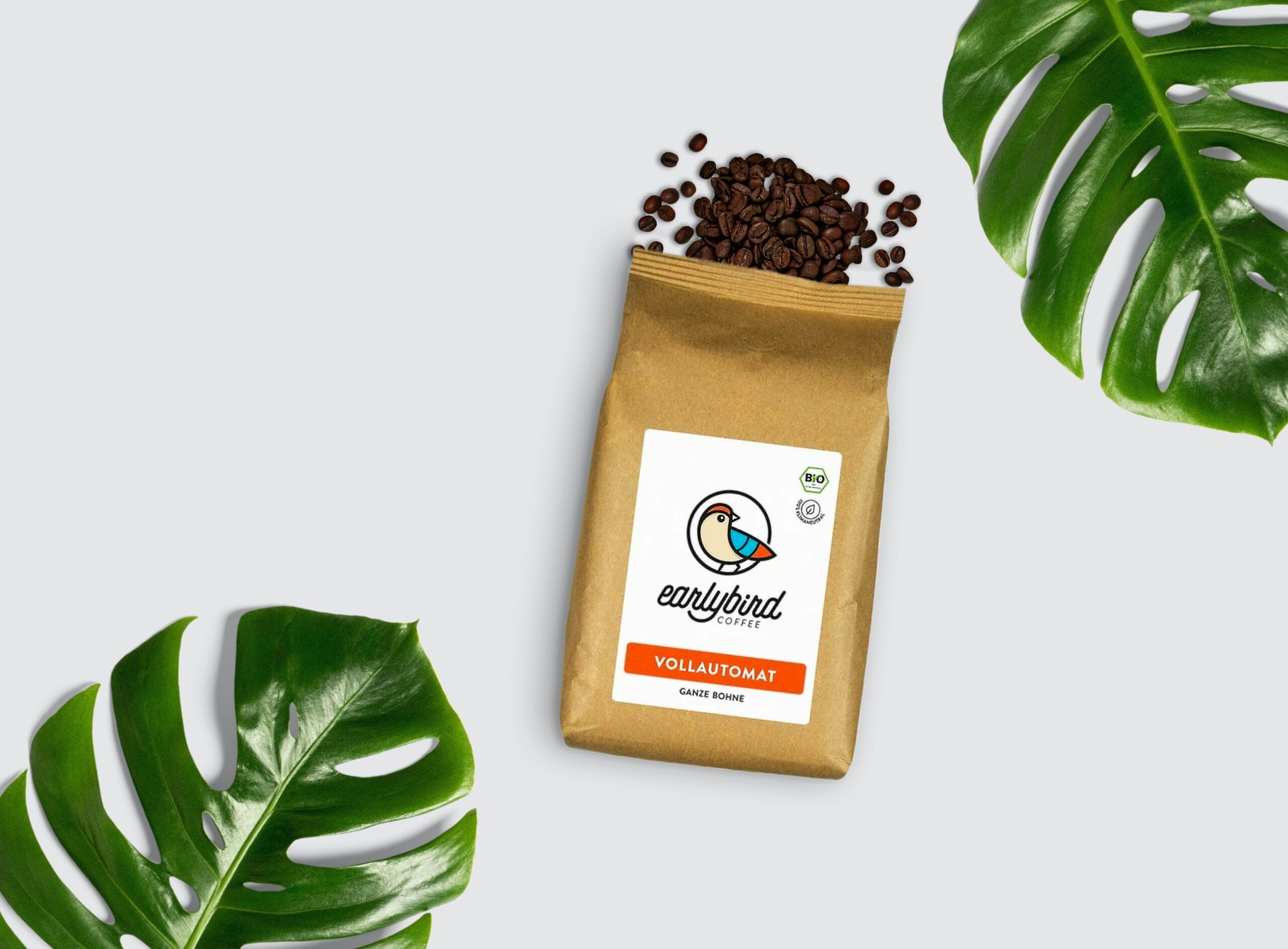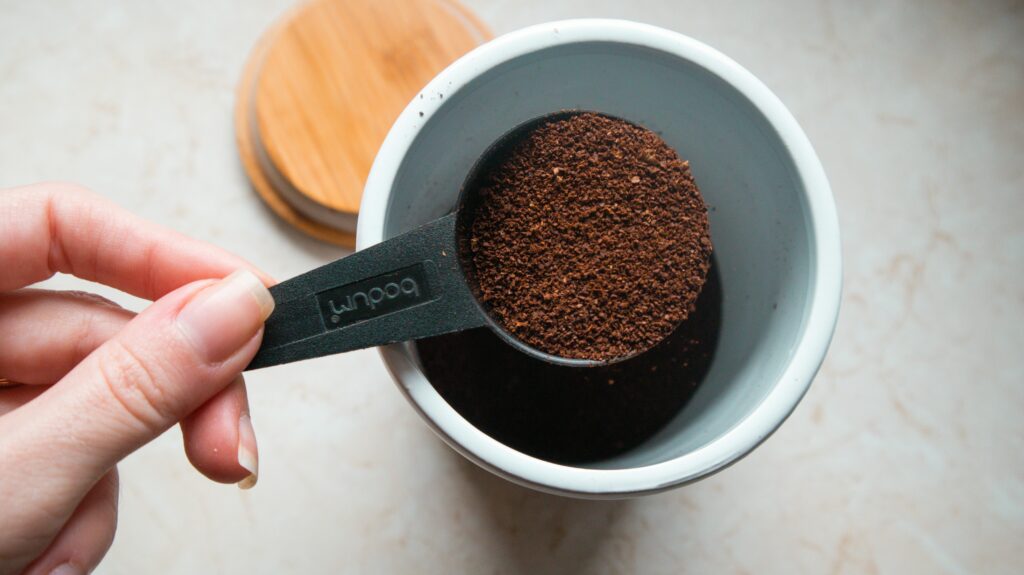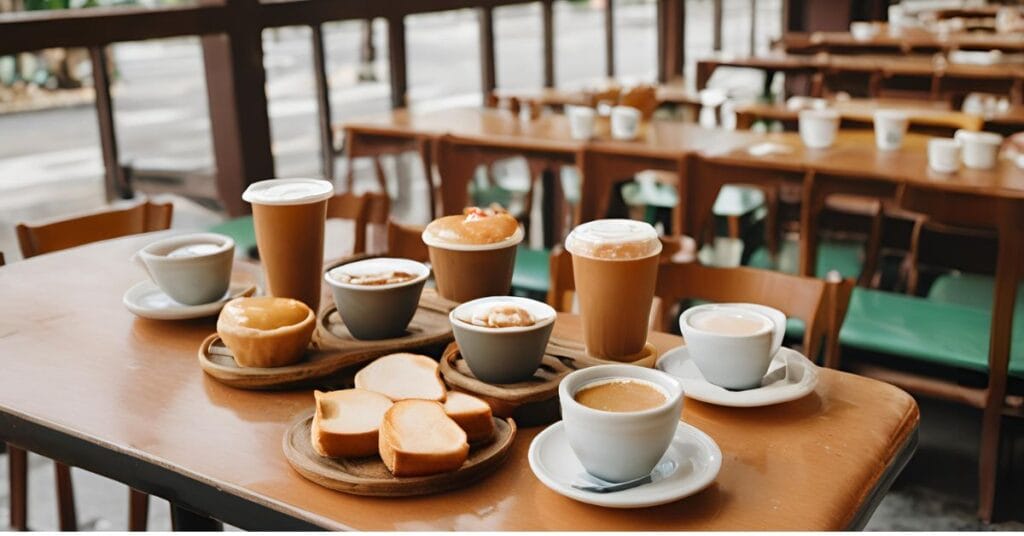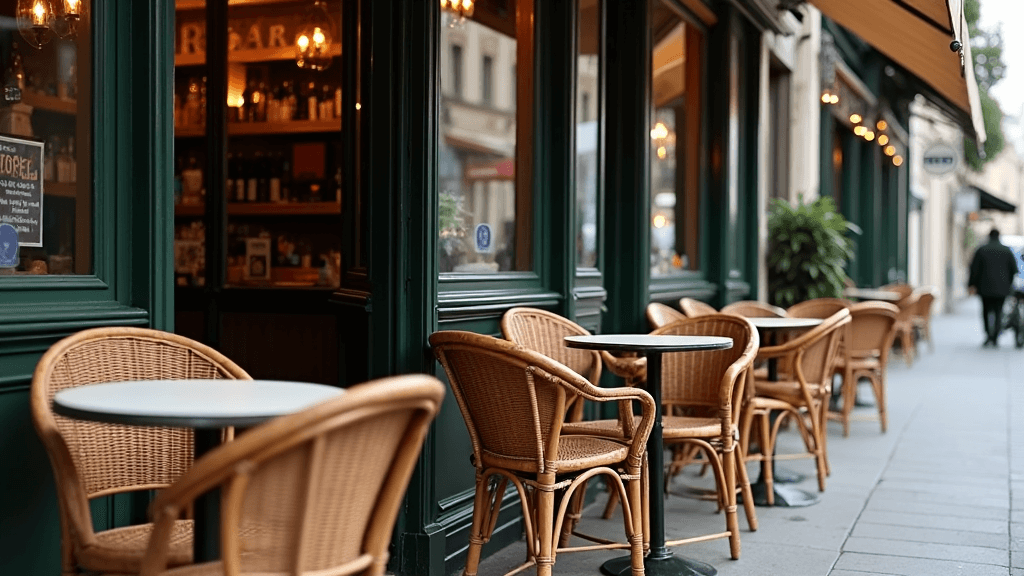Having recently traveled to Singapore, I found myself captivated by the city’s vibrant coffee culture. Singapore is a place where diverse cultures and modernity blend seamlessly, and its coffee scene is no exception. From traditional kopitiams to trendy third-wave cafes, the coffee landscape in Singapore reflects both its rich heritage and forward-thinking spirit. In this article, I’ll share my experiences exploring coffee culture Singapore, highlighting its history, current trends, and the vibrant community that has formed around this beloved beverage.
Table of Contents
ToggleThe Origins of Coffee in Singapore
Definition
Coffee culture in Singapore refers to the unique blend of traditional and modern coffee practices. It includes local Kopitiams (traditional coffee shops) where people enjoy classic Singaporean coffee like Kopi O (black coffee) and Kopi C (coffee with evaporated milk). At the same time, it also features a growing trend of specialty cafés offering high-quality, artisanal coffee using methods like pour-over and espresso. This culture reflects the diverse tastes of Singaporeans and plays a significant role in the country’s social life, from casual meet-ups to café hopping activities.
The history of coffee in Singapore is deeply rooted in its multicultural society. Coffee, or “kopi” as it is locally known, has been a part of Singaporean life for centuries, brought by early Chinese immigrants. During my visit, I spent a lot of time in traditional coffee shops, called “kopitiams,” which have become popular gathering places for socializing and conducting business. The term “kopitiam” itself is a combination of the Malay word “kopi” (coffee) and the Hokkien word “tiam” (shop).
Kopitiams serve a distinctive type of coffee, brewed with robusta beans roasted with sugar and margarine, giving it a rich, caramelized flavor. The resulting brew is typically strong, often sweetened with condensed milk, and served in small ceramic cups. I tried various local variations like Kopi O (black coffee with sugar) and Kopi C (coffee with evaporated milk), and each offered a distinct taste that I hadn’t experienced elsewhere.
Coffee Culture Singapore History Table
| Time Period | Key Event or Development | Description |
|---|---|---|
| Early 1800s | Introduction of Coffee | Coffee was introduced to Singapore by early Chinese and Malay immigrants, establishing kopitiams. |
| Late 1800s | Growth of Kopitiams | Kopitiams became popular social gathering places where people could enjoy affordable coffee drinks. |
| 1950s | Roasting Techniques | Unique roasting methods involving sugar and margarine were developed, giving kopi its distinct flavor. |
| 1970s-1980s | Rise of Instant Coffee | Instant coffee became popular for convenience, though traditional kopitiams continued to thrive. |
| Early 2000s | Introduction of Western Cafes | Western coffee chains like Starbucks and Coffee Bean began to appear, bringing espresso-based drinks. |
| 2010s | Third-Wave Coffee Movement | Artisanal coffee culture began to rise, focusing on specialty coffee beans and brewing methods. |
| Present Day | Blend of Tradition and Modernity | Singapore’s coffee scene now features a mix of traditional kopitiams and modern third-wave cafes. |
The Rise of Third-Wave Coffee in Singapore
In recent years, Singapore’s coffee culture has evolved with the global trend towards artisanal coffee, often referred to as the “third-wave” coffee movement. During my stay, I visited several third-wave cafes and noticed their emphasis on high-quality beans, careful brewing methods, and a focus on coffee origins. This trend has led to the rise of specialty coffee shops across Singapore, catering to those who appreciate the craftsmanship involved in making the perfect cup.
Traditional vs. Modern: A Unique Blend
Traditional Kopitiams
Kopitiams have long been a staple in Singaporean culture, providing a space for social gatherings and daily routines. The ambiance of these traditional coffee shops is nostalgic, with marble-topped tables, wooden stools, and simple decor. Kopi is served alongside local delights like kaya toast and soft-boiled eggs, creating a comforting and familiar experience.
Third-Wave Cafes
In contrast, third-wave cafes have brought a modern twist to Singapore’s coffee scene. These specialty cafes focus on high-quality beans, precise brewing techniques, and creative presentation. Cafes like Chye Seng Huat Hardware, Common Man Coffee Roasters, and Nylon Coffee Roasters are popular among the younger generation and expatriates, offering a sophisticated coffee experience with minimalist interiors and artisanal flair.
Coffee Rituals and Social Life in Singapore
Kopitiam Rituals
In Singapore, coffee is more than just a beverage—it is a ritual and a way to connect with others. Kopitiams are popular meeting spots for friends and families, offering an authentic glimpse into local life. I noticed people gathering at these coffee shops in the early morning hours for a cup of kopi paired with kaya toast, a quintessential breakfast that includes bread spread with kaya (coconut jam) and butter, often served with soft-boiled eggs.
Third-Wave Social Hubs
In contrast, specialty cafes have become social hubs where people work remotely, meet friends, or simply unwind. The ambiance of these cafes—often designed with minimalist or rustic décor—encourages relaxation and offers a retreat from the fast-paced city life. I often found myself enjoying a quiet afternoon at these cafes, sipping on a well-crafted pour-over. Whether it’s a bustling kopitiam or a tranquil cafe, coffee culture in Singapore serves as an important facet of social life, bringing people together across generations.
Must-Try Coffee Drinks in Singapore
Local Coffee Drinks You Should Try
Singapore’s coffee culture is rich with unique local drinks that you won’t find anywhere else. Here are some of the must-try coffee beverages that highlight the diversity of flavors in the Lion City from my personal experience:
Kopi Gao: A strong, thick brew of coffee with extra intensity—perfect for those who need an extra caffeine kick. Visit Heap Seng Leong
Kopi Peng: Iced coffee served with condensed milk, ideal for Singapore’s tropical climate. Visit Chye Seng Huat Hardware
Kopi Gu You: This unusual drink includes a dollop of butter added to kopi, giving it a creamy texture and rich flavor. Visit Common Man Coffee Roasters
Kopi O Kosong: Black coffee without sugar or milk, perfect for those who prefer their coffee unsweetened.
Coffee Drinks Comparison Table
| Coffee Drink | Description | Sweetness Level | Ideal For |
|---|---|---|---|
| Kopi Gao | Thick, strong coffee with extra intensity | High | Strong coffee lovers |
| Kopi Peng | Iced coffee with condensed milk | Medium | Hot weather refreshment |
| Kopi Gu You | Coffee with butter for a creamy texture | Medium | Fans of rich, creamy flavors |
| Kopi O Kosong | Black coffee without sugar or milk | Low | Those who prefer unsweetened |
Coffee Culture Statistics in Singapore
Number of Kopitiams in Singapore: Estimated at over 3,000 across the country.
Third-Wave Cafes Growth: The number of specialty coffee cafes has grown by 150% over the past decade.
Average Price of Kopi: The cost of a cup of kopi at a kopitiam is around SGD 1.20, whereas a cup of artisanal coffee at a third-wave cafe costs about SGD 5-7.
Sustainability and the Future of Coffee Culture
Ethical Sourcing and Sustainability
As Singapore’s coffee culture continues to evolve, sustainability has become a growing focus. Many third-wave cafes are committed to sourcing beans ethically and ensuring that their supply chains support coffee farmers around the world. This focus on sustainability is reflective of Singapore’s efforts to promote environmental consciousness in all aspects of daily life.
Eco-Friendly Initiatives
Moreover, cafes have started adopting eco-friendly practices such as using biodegradable cups, reducing plastic use, and encouraging customers to bring their own reusable mugs. During my visit, I saw several cafes promoting eco-friendly initiatives, which highlighted the connection between the growing coffee culture in Singapore and the increasing emphasis on environmental sustainability.
Kopitiam vs. Third-Wave Cafes: A Comparison
Think of Singapore’s coffee culture like two sides of a coin. On one side, you have the traditional kopitiam—a place of nostalgia, simplicity, and affordability. On the other side, you have third-wave cafes—modern, artisanal, and trendy. Both sides coexist in harmony, providing options for different tastes and experiences, much like the blend of old and new that defines Singapore itself. This blend was something I personally enjoyed experiencing during my time in Singapore.
Coffee and the Singaporean Lifestyle
Morning Rituals
Mornings in Singapore often begin with a visit to the local kopitiam for a quick caffeine fix and breakfast. I loved starting my day with a hot cup of kopi and kaya toast, which gave me a boost of energy for the day ahead. The simplicity of the meal, paired with the rich taste of kopi, provided a comforting and familiar start to the day.
Cafe Culture and Social Interaction
In the afternoons, third-wave cafes became my go-to spots. These cafes not only serve great coffee but also act as places for social interaction. I noticed how people would meet to catch up on life, discuss work, or simply enjoy a cup of coffee while relaxing. The dynamic atmosphere of these cafes made them perfect for unwinding or getting some work done.
Tips for Experiencing Singapore's Coffee Culture
Visit a Kopitiam Early Morning: Start your day at a kopitiam to experience the traditional breakfast and the local vibe.
Try Both Kopi and Specialty Brews: Don’t miss out on both ends of the spectrum—enjoy a local kopi and then head to a third-wave cafe for an artisanal brew.
Pair Kopi with Kaya Toast: It’s the quintessential pairing that provides an authentic taste of Singapore.
Talk to the Locals: Engage with the locals in a kopitiam, as they often have stories and insights about their favorite kopi variations.
Explore Different Cafes: Singapore has a wide variety of cafes, each with its unique charm—explore as many as you can!
Best Coffee in Singapore: My Recommendations
If you’re wondering where to find the best coffee in Singapore, here are a few of my recommendations for coffee lovers looking for both traditional and modern experiences:
Heap Seng Leong: This kopitiam is famous for its traditional kopi and old-school ambiance, complete with vintage décor. Visit Heap Seng Leong
Common Man Coffee Roasters: For those who enjoy specialty brews, this café offers a variety of artisanal coffee made from ethically sourced beans. Visit Common Man Coffee Roasters
Chye Seng Huat Hardware: This café is popular for its third-wave approach, great espresso, and laid-back vibe, making it perfect for café hopping. Visit Chye Seng Huat Hardware
Nylon Coffee Roasters: Known for its focus on single-origin beans and careful roasting process, Nylon Coffee Roasters is a great spot for anyone interested in exploring specialty coffee. Visit Nylon Coffee Roasters
Tiong Hoe Specialty Coffee: A hidden gem offering high-quality brews and a diverse range of coffee beans for those who like to brew at home. Visit Tiong Hoe Specialty Coffee– Heap Seng Leong: This kopitiam is famous for its traditional kopi and old-school ambiance, complete with vintage décor.
Common Man Coffee Roasters: For those who enjoy specialty brews, this café offers a variety of artisanal coffee made from ethically sourced beans.
Chye Seng Huat Hardware: This café is popular for its third-wave approach, great espresso, and laid-back vibe, making it perfect for café hopping.
Unique Coffee Experiences in Singapore
Latte Art and Artisan Brews
While exploring the Singapore coffee scene, I was impressed by the craftsmanship of the baristas. Many third-wave cafes specialize in latte art, with intricate designs that showcase the baristas’ skills. Specialty coffee beans sourced from various regions bring unique flavors to the cup, making each visit a unique coffee experience in Singapore.
Singapore Espresso Bars
For espresso lovers, Singapore espresso bars offer a variety of brewing methods and flavors that cater to every taste. From a classic shot of espresso to more elaborate coffee drinks, these cafes truly embrace the global coffee movement.
FAQs: Coffee Culture Singapore
What Makes Singapore’s Coffee Unique?
From my perspective, Singaporean coffee, or kopi, is unique due to its roasting process, which involves using sugar and margarine. This results in a caramelized flavor that is rich and robust.
What Is the Difference Between Kopi and Espresso?
Kopi is made using robusta beans roasted with sugar and margarine, while espresso uses arabica or robusta beans that are roasted without additives. Kopi is usually stronger, sweeter, and has a more caramelized flavor.
Where Can I Find the Best Kopitiam in Singapore?
Based on my experience, popular kopitiams like Tong Ah Eating House and Heap Seng Leong offer a traditional experience. They are well-loved for their authentic coffee and classic breakfast sets.
Conclusion
The coffee culture in Singapore is a fascinating blend of tradition and modernity, with a rich heritage that has evolved to embrace the global specialty coffee movement. From the local kopitiam serving traditional kopi to stylish third-wave cafes, Singapore offers a diverse coffee experience that caters to every taste. For me, the coffee culture here was not just about the beverage itself but also about community, social connections, and a shared love for the craft of coffee-making. Whether you’re a fan of the traditional kopi or a connoisseur of artisanal brews, Singapore’s coffee scene has something for everyone to enjoy.
References
- what is the ph value of coffee?
- Coffee Culture UK
- Canadian Coffee Culture
- You Won’t Believe What Instant Organic Coffee Can Do for You!
- What coffee is best for me?
- Coffee-to-Water Ratio Calculator
Your Feedback Matters
Have you experienced the coffee culture in Singapore? Which do you prefer—traditional kopi at a kopitiam or a specialty brew at a modern cafe? I’d love to hear your thoughts and experiences. Share your insights and join the conversation about the vibrant coffee culture in Singapore!




